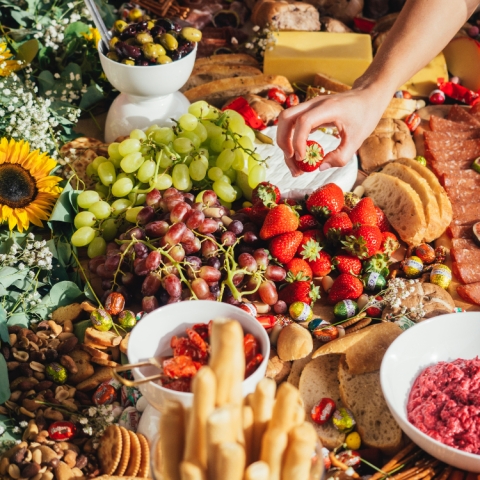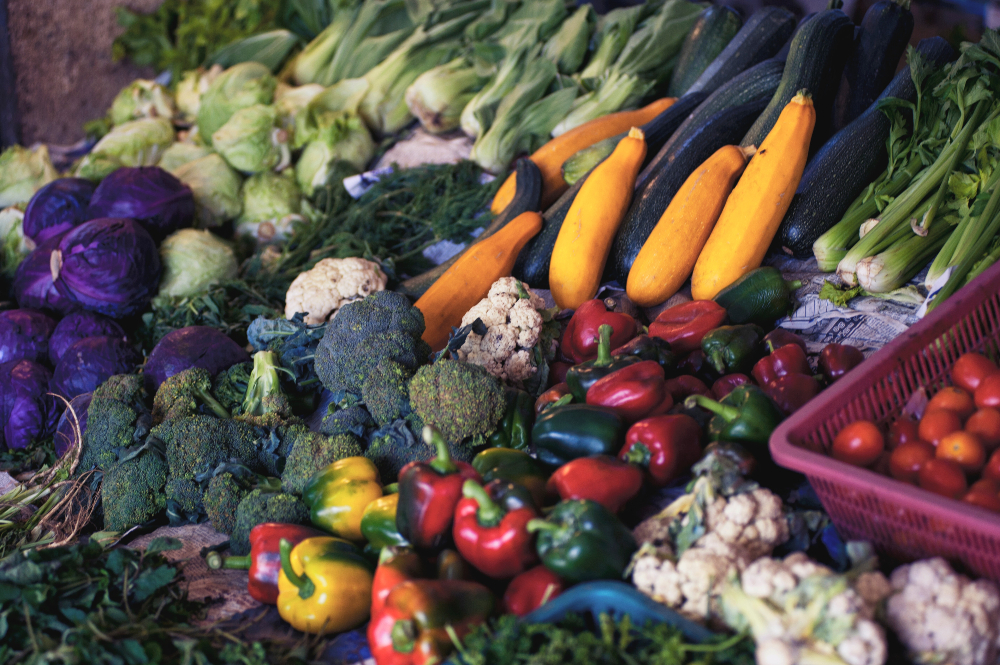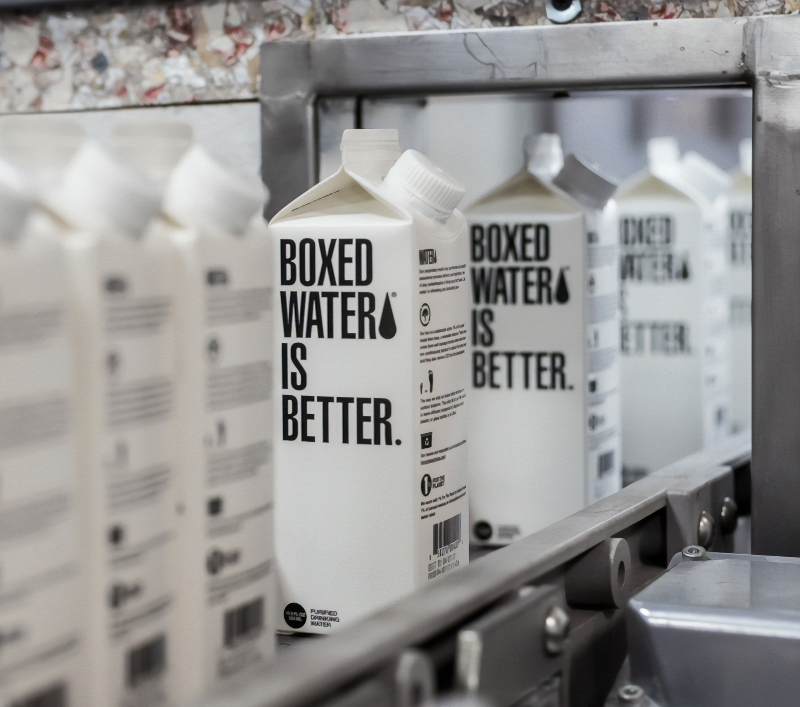How to Create A Sustainable Menu for Your Event

Creating a sustainable food and beverage plan for your events isn’t just about reducing your carbon footprint. Ultimately, it’s about taking on the responsibility for making safe and healthy food choices for a number of people, says Tracy Stuckrath, president and chief connecting officer of Thrive Meetings & Event.
Stuckrath discussed sustainability and the ways that event menu choices can impact the well-being of attendees, budget and the planet in PCMA’s Bites and Sites webinar “Creating A Sustainable Menu for Your Event,” held live on June 6. Here are some key take-aways to consider when planning menus for your next event.
Ask the Right Questions
Between 30 and 40 percent of the food produced in the United States is wasted, while the meetings industry in the U.S. alone spends $48 billion on food and beverage every single year. So, doing the math, that means somewhere in the vicinity of $21 billion of that waste is generated by meetings and events.
To reduce this number, it’s important to make sure that your food and beverage providers are following sustainable practices along the entire food chain — before that food even gets to your event as well as after it’s served, Stuckrath suggests.
A good way for planners to start is by understanding where their food is coming from, and what happens to any leftovers or discards. It’s also important to make sure the line cooks, banquet captains and banquet servers are following sustainable practices and know what they should be doing to help prevent food waste.
Questions to ask include:
Upstream
- Where are chefs sourcing food from?
- How far away is it coming from, how will it be transported and kept fresh?
- Are the organizations providing it fair-trade?
Downstream
- How is that food and beverage being managed once it’s prepared and delivered?
- Will it be re-used in a different meal?
- Will it be donated or just dumped?
- Are the kitchens saving food scraps for reuse or compost?
Remember to FLOSS
Stuckrath recommends using FLOSS as handy acronym to remember the five principles to follow when ordering event food and beverage: Fair, Local, Organic, Seasonal and Smart.
Fair: Buy food fairly traded by companies committed to creating sustainable development with better trading conditions, securing the rights of the people working for them so they’re not starving or working in bad conditions.
Local: Try to source food that has been grown or produced, processed and sold ideally no more than 100-150 miles from your event location. Check Localharvest.org to find local farmers and see if your hotel or convention center can partner with them.
Organic: Incorporate more organic foods into your menus. Organic means no chemicals, pesticides or fertilizers are used; no genetic engineering; planting is rotated from field to field, and (for farm animals) no hormones or antibiotics; organic feed, and the freedom to engage in natural behaviors.
Seasonal: Serve what’s in season within your region. Consider highlighting seasonal items on your menus. Seasonalfoodguide.org can give you a good idea of what you can buy.
Smart: Understand who you’re buying from. The production of food, fiber or other plant or animal products should produce healthful food without compromising future generations’ ability to do the same. For example, look for farmers who are regenerating their soil.
Recycle, Reuse, Repurpose
 Food waste is discarded, uneaten food that is still safe and nutritious. There’s food wasted in both the front and the back of the house – for example, you ordered 500 meals and only 450 people showed up. Those 50 meals are still safe and nutritious provided certain food safety standards are adhered to, involving keeping food temperature controlled and using it within a designated period of time.
Food waste is discarded, uneaten food that is still safe and nutritious. There’s food wasted in both the front and the back of the house – for example, you ordered 500 meals and only 450 people showed up. Those 50 meals are still safe and nutritious provided certain food safety standards are adhered to, involving keeping food temperature controlled and using it within a designated period of time.
The Bill Emerson Good Samaritan Act and the U.S. Food Donation Act of 2008 were designed to allow organizations to donate food without liability, provided these safety standards are met.
Stuckrath suggests conducting a food audit at your event. What buffet food wasn’t eaten? Can you cut back on variety while still providing a wide enough range to fit your attendees’ dietary requirements and preferences? What meals (such as kosher or gluten-free meals prepared by advance request) weren’t picked up — and why? What happens to any extra meals left if attendance is lower than your guarantees? How much unserved food is left in the back of the house?
Helpful Resources
The following resources may be helpful when planning your event.
- USDA Food Waste Challenge - Tips for how to manage food waste
- Rock & Wrap It Up – has relationships with 40,000 organizations across the country that will accept the food you want to donate, and will manage the process for you. The organization suggests you put a clause in your contracts stating that you will be donating to this organization, and that they will take care of it for you.
- Goodr — helps you donate, recycle, re-use, repurpose and track your impact.
- Drexel University Food Lab – partners with local organizations to teach students how to better manage food waste.
- Harvard Food Law & Policy Clinic – helps with donations and making sure the Bill Emerson Good Samaritan Act is adhered to, and can help you with your donation.
- Hotel Kitchen — partnership between the World Wildlife Foundation and the American Hotel and Lodging Association that works with hotels and meeting planners to understand how to manage food waste on the front end.
- Seafood Watch and Oceana Sustainable Seafood Guide — tell you what seafood to buy or stay away from in a particular area; helps you understand where seafood is coming from and if it’s in season.
Stuckrath also recommends looking at standards to help you come up with additional questions to ask your providers. The latest proposed sustainability standards from the Events Industry Council are available for public comment until July 17.
For more valuable insights, suggestions and tools to help you select more sustainable food and beverage for your events, watch the PCMA Bites & Sites Webinar: Creating A Sustainable Menu for Your Event on-demand here.
Don't miss any event-related news: sign up for our weekly e-Newsletter HERE and engage with us on Twitter, Facebook, LinkedIn and Instagram!


Add new comment